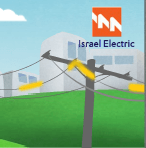 Israel has decided its broadband future can no longer lie in the hands of one phone and one cable company, so the country is commissioning a nationwide fiber to the home broadband network that will be run as a public-private partnership, eventually reaching every home and business in the country.
Israel has decided its broadband future can no longer lie in the hands of one phone and one cable company, so the country is commissioning a nationwide fiber to the home broadband network that will be run as a public-private partnership, eventually reaching every home and business in the country.
This week, a quasi-governmental committee chose Sweden’s Viaeuropa to build the fiber network beginning as early as six months from now.
The network will support speeds up to 1Gbps and will be owned by the public utility Israel Electric Corporation and a consortium of private entities including Viaeuropa.
“All citizens of Israel will enjoy very fast Internet speeds, which could be a significant growth engine for Israel’s economy,” Roni Friedman, acting director of the Government Companies Authority in the Finance Ministry said in a statement.
The new broadband service will deploy at least 25,000km of fiber, 70 percent purposely wired above-ground to reduce construction costs. By 2020, at least two-thirds of Israel will have access to the service. Israel’s electric utility will also contribute its 3,000km of previously deployed fiber cable to the venture.
 Current consumer broadband speeds in Israel top out at around 100Mbps, but at a price. Broadband is still costly in Israel and most customers choose packages comparable to what Americans receive — 10-15Mbps service.
Current consumer broadband speeds in Israel top out at around 100Mbps, but at a price. Broadband is still costly in Israel and most customers choose packages comparable to what Americans receive — 10-15Mbps service.
The Israeli government is concerned that a duopoly is suppressing Israel’s broadband standing, a condition considered intolerable as the country moves towards the 21st century digital economy.
Bezeq, the former state-owned phone company, has a 61 percent market share. It offers a fiber to the neighborhood service similar to AT&T U-verse, with broadband speeds in some homes up to 100Mbps. Cable company HOT has most of the rest of the market — 39 percent, and also offers up to 100Mbps service. Upstream speeds are much slower — 1-1.5Mbps maximum.
The new fiber network is capable of gigabit broadband speeds in both directions. The government hopes the competition will force both the phone and cable company to deliver improved services at lower prices. Bezeq has already begun fiber to the home service trials.


 Subscribe
Subscribe
Israel doesn’t really have a duopoly as you suggest, but a very inefficient diad or triad of backbone operator, last-mile operator, and ISP. The system was mandated to break Bezeq’s monopoly, but having three ‘throats to choke’ can be very frustrating for a subscriber. In a typical scenario, Bezeq owns the long-haul fiber backbone, HOT operates a 10-Gbps link from its CMTS to a fiber node, and 013 Netvision is the ISP, with the subscriber paying both HOT and 013 Netvision. I have no idea what the ISP really ‘does’ – whether they manage BGP routes, or own edge routers… Read more »